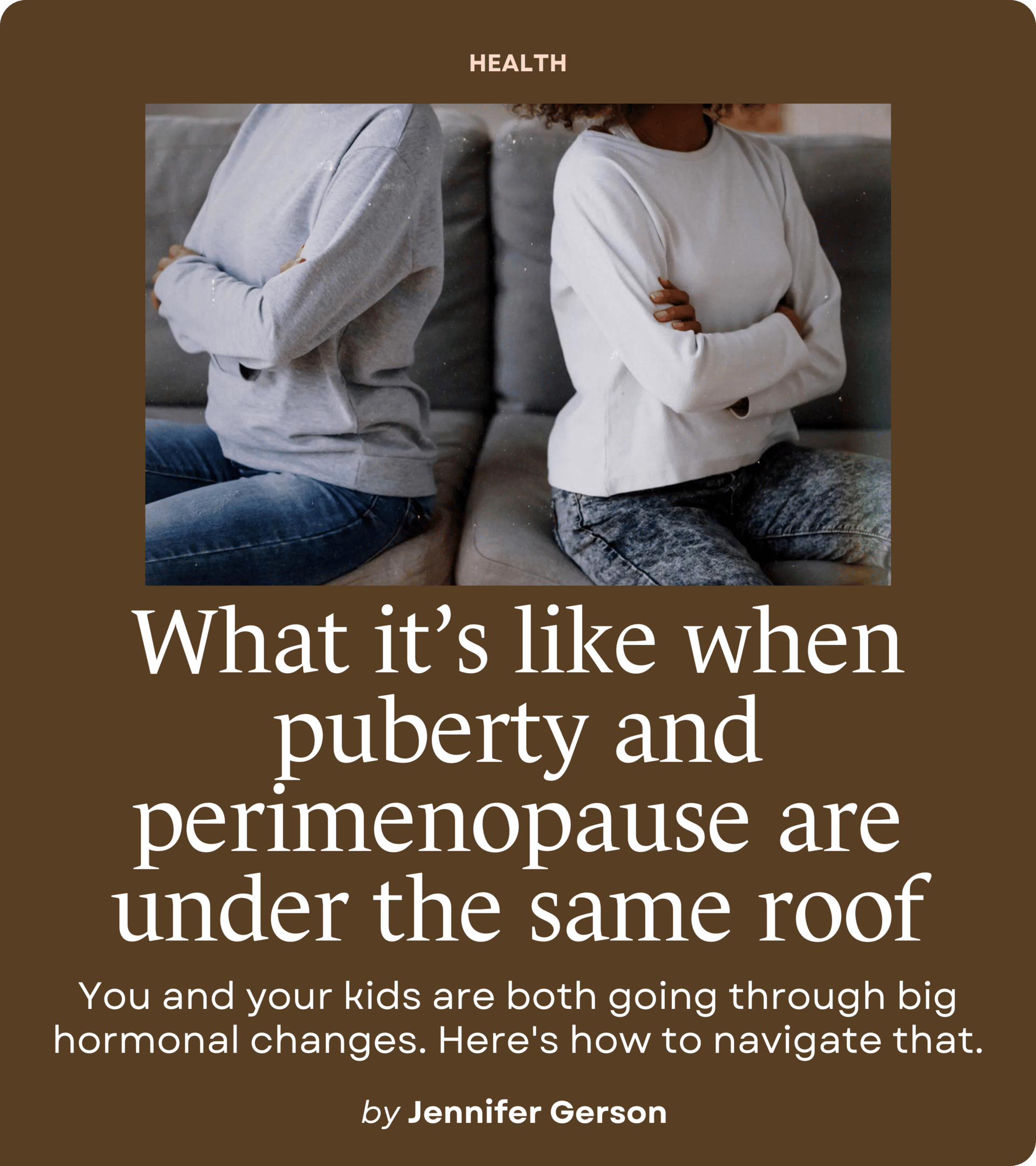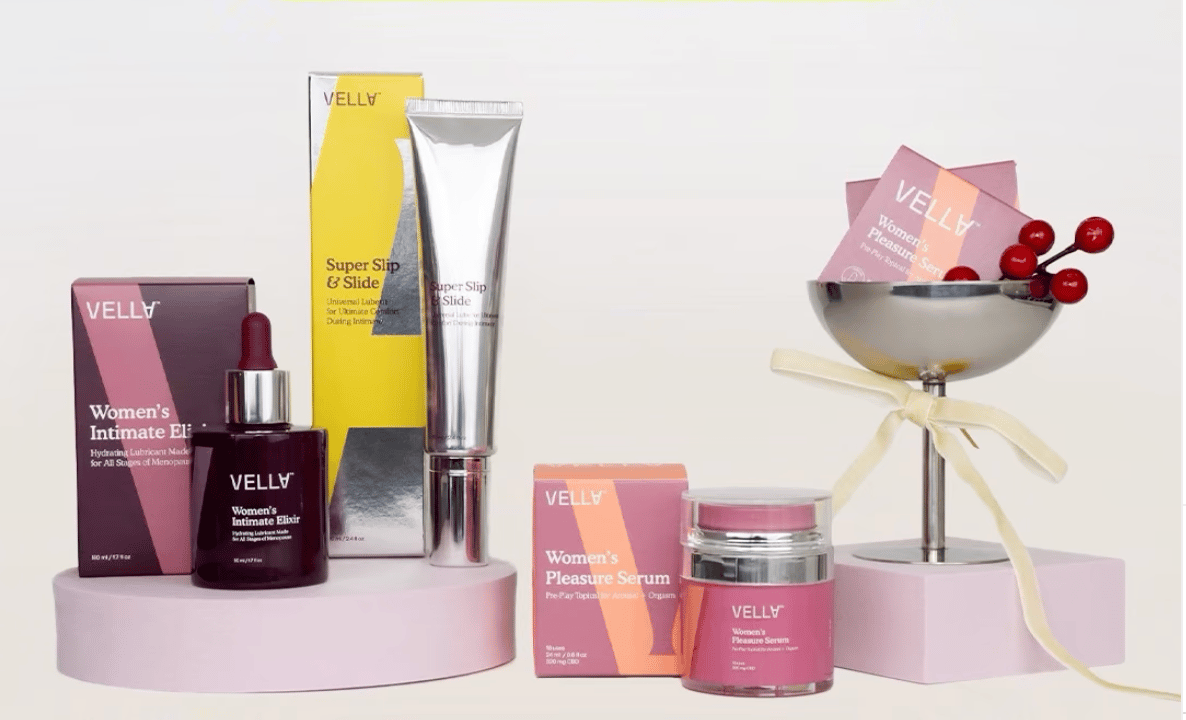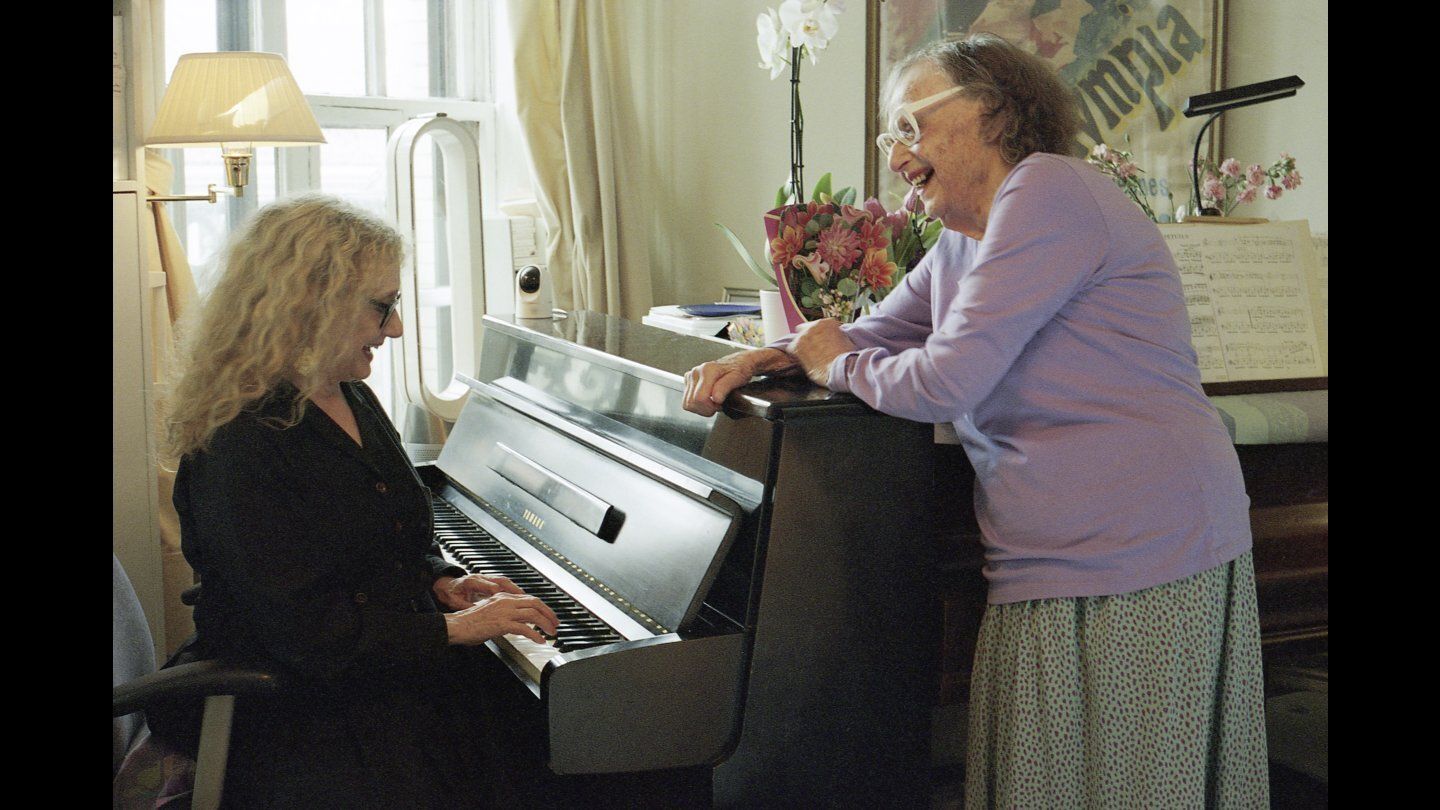- Gloria
- Posts
- A Hormonal Mess?
A Hormonal Mess?
Plus: Our new fave album, and more.

Hi friend,
“Thanksgiving, as it tends to be celebrated, is the most honest American holiday: all appetite, no apology,” writes Helen Rosner for the New Yorker. You could say the same thing about Black Friday.
This shopping bonanza was once hemmed in by strict boundaries of time and retailer shelf space. When it went digital, it sprawled out. What is “Black Friday” anymore, but an umbrella term for sales that happen on, around, or prior to Thanksgiving Day?
Black Friday used to be a literal doorbuster. The phenomenon kicked off in the late ‘80s, but really took off in the ‘90s. It was the era of Jerry Springer, and Black Friday mixed America’s fondness for watching people brawl on TV with our nation’s consumerist leanings. Local news outlets delighted in airing footage of people massing in front of Walmart, or tussling in store aisles over Tickle-Me Elmos (1996) or Furbies (1998).
We’re thankful that people aren’t trampling each other during their Black Friday toy shopping now — and we’re also thankful for The 19th News, one of our very favorite news outlets. They recently launched a once-a-week menopause newsletter and today we have a feature from it. It’s about puberty, perimenopause, and how they may be alike in suffering, but are also totally different. Read on for that, plus a few recommendations for your weekend.
Bye,
Your friends at Gloria

This story was originally reported by Jennifer Gerson of The 19th. Meet Jennifer and read more of their reporting on gender, politics and policy.
At a back-to-school pool party for my fifth grader in August, I nearly leaped across the patio to accost a group of moms talking.
“Perimenopause,” I heard. “Puberty,” I heard. “So much crying,” I heard.
I ran up to this group of women — some of whom I knew, some of whom I didn’t — and said, “Can you roll this whole tape back and start over? I need to hear it all.”
More and more moms joined this crowd whispering poolside to commiserate about how hard it is to parent a daughter going through puberty when you yourself are going through perimenopause.
When I asked readers of our menopause newsletter about this experience, I heard from lots of you about how intense this time could be: Tears. Screaming. Existential moments of self-reflection.
Reader Martha, 50, told me about how much she and her daughters (ages 11 and 13) enjoyed watching Are You There God? It’s Me, Margaret together — and how it’s just one major source of shared joy (and understanding) she and her daughters have found.
They’ve also bonded over how reliant they are on their friends to navigate a period of big hormonal changes. Martha said she turns to her group chat for advice on every new symptom — something her daughters say mimics the way they talk to their friends about puberty. It’s nice to always have a focus group to text, “Oh my God, this completely bonkers thing is happening to my body — is it maybe happening to yours too?!”
Reader Janine is 44 now, but was 39 when she first started perimenopause while also parenting three tween girls. She worried she had an anger problem, some flaw in her personality. She didn’t understand then that what she was experiencing was a symptom of her hormones changing.
She’s on hormone therapy and anti-anxiety medication now, which she says has made a world of a difference. But she wishes she and her family were more prepared for the impact of perimenopause — and she wants her own daughters to feel better prepared to handle all of this one day.
“How sad that I was going through that time and I didn’t have any information on perimenopause. I didn’t know these were normal symptoms. No one told me, ‘No, you’re not crazy,’” she said.
Given that I have a middle school-aged daughter myself, I also was really thinking that what we need most — in addition to camaraderie — is some really good advice on exactly how best we can parent during this season.
That’s why I called the person I often refer to among friends as “the only person I trust on the Internet,” Lisa Damour. She’s a clinical psychologist who specializes in adolescent girls, literally wrote the book on how to parent these kids, has a wonderful Instagram account and a podcast with lots of good advice.
Also, if you loved Inside Out 2 as much as my family did, you have Damour to thank: She consulted on the film to make sure it accurately portrayed the emotional development of adolescent girls.
She actually just discussed this very topic on her podcast, Ask Lisa.
What Damour told me is that puberty and perimenopause are actually just really different experiences — and that it’s important to understand these differences so we can show up better for ourselves and our kids both during this time.
“It’s kind of hormones and it’s kind of not,” she said. “I think it’s probably smart to uncouple the kids’ hormonal experience from the parents’ and not talk about them all in the same breath.”
For kids, it’s not a surge of hormones that makes their mood go haywire, she said. Researchers have used spit tests to measure hormone levels in adolescent girls and compared them to their changing moods. “You actually don’t see a strong correlation between heightened emotionality and high levels of hormones at any given moment,” Damour said.
During puberty, she explained, the brain undergoes a massive surge in development as a result of this new rush of hormones (as we mentioned in our edition on ADHD!), physically changing from back to front. The back of the brain contains the emotion centers and the front is the perspective-maintaining systems.
Teens of all genders are so readily dysregulated not because of hormones levels at any given moment, she said, but because of this “broader brain renovation project that leaves them with a very gawky brain that can become very, very reactive — and it can be hard for them to maintain perspective when they’re upset.”
(In girls, this typically peaks around age 13; in boys, it’s usually around age 15.)
So while your kid might be moody around this age, it’s not just hormones. “One reason to think carefully about talking about hormones and kids is one, it’s a much more nonspecific phenomenon — it’s the brain changing because hormones are driving that,” she said. “And two, it really rubs teenage girls the wrong way when adults are like, ‘Oh you’re acting that way because you’re hormonal.’”
What can be helpful, though, is explaining these neurological developments. All these feelings they’re having are because their body is doing so much work to grow and change — and it won’t be forever. There’s nothing wrong with them; their brains are just going through the hard work of a total remodel. Knowing this can make them feel much less overwhelmed.
Damour reminds us that moods can always be thought of as symptoms, no different than a fever or a cough.
If during perimenopause you’re feeling very emotionally dysregulated or struggling with sleep, “you need to talk to your physician about what can be done,” she said. “There are some really great changes that can be made or interventions that can be utilized so you just don’t have to be in this terrible hormonal soup at home.”
But even then, what you’re experiencing is different from what your child is. Hot flashes may not be fun, but at least your entire body didn’t morph overnight.
“In puberty, they go into it at like 5 foot with no boobs and no period, and then two or three years later, the kid is 5’8” and looks like an adult woman,” Damour reminded. “That is a really, really dramatic transformation, especially in terms of how the world relates to you.”
By addressing our own symptoms and taking care of ourselves, Damour said, we can teach our kids a very valuable lesson about healthy coping.
For example, Damour said, if you’re not sleeping well, you might want to:
- Evaluate your caffeine intake
- Talk to your doctor about vasomotor symptoms that are interrupting sleep
- Explore what other emotional factors might be keeping you up at night.
“Talking openly about smart and healthy and adaptive coping choices … is the best gift you could give your kid. The best gift is being pretty boring and managing your own emotions on your own time.”
And to do that well, you have to make sure that you are getting the care you need, too.
One thing that’s true for both kids going through puberty and their grown-ups going through perimenopause? “Development is inherently challenging,” Damour said. “Change equals stress.”
And this is hard on kids and parents alike.
“Kids do nothing but change and by its nature, having a kid and being a kid are both very, very stressful. I think we are all in a better position if we start with that understanding, as opposed to continuing to guess, ‘Huh why is this always so stressful?’ because then we get stressed about the fact that we are stressed,” Damour said.
She also added that this dynamic is further exacerbated by a parenting industry that insists that if only parents were “to do this right move on this right day, raising kids will be easy. But raising kids is a really challenging thing and that's the nature of it.”
“The best gift we can give our kid is to be a steady presence at home and to do that, we’re going to have to take really good care of ourselves,” Damour said. “That taking care of ourselves is part of how we care for our families.”


What if you could feel even more? The team of doctors, scientists, and women’s health advocates at Vella Bioscience is focused on exactly that, creating clinically backed solutions for women’s pleasure and well being, from menstruation to menopause. Their trio of products includes an arousal cream, a silky oil-based option, and a clean water-based lube, each designed to support comfort, ease, and deeper connection. And if you’ve been curious, this is the moment to try them, since they’re offering 25 percent off everything now through Cyber Monday, plus a free vibrator on orders over $75. #partner


Carol & Joy. Image via Janus Films.
TO WATCH Expect to see a lot of talk about HBO’s steamy new series Heated Rivalry, which is a sexed-up romance between two closeted ice hockey stars. In theaters, the new queer BDSM indie flick Pillion has Alexander Skarsgård as leather-wearing biker dude that romances a shy traffic cop. Also: If you have Criterion Channel, this short documentary is going to be a must watch.
TO SHOP We are loving all the prints in this new rug collection. There’s a nice, classic plaid, but the soft florals really steal the show. And because it’s Ruggable, every style is machine washable — meaning it’s kid, pet, and guest-friendly. Shop it here. #partner
TO MAKE This Bon Appétit recipe for after-Thanksgiving enchiladas featuring your leftover turkey have been a favorite for years. You can obviously use roasted chicken too.
TO LISTEN Bleeds, the newish album by the indie band Wednesday, was the perfect soundtrack for some rage cleaning early Thursday morning. We particularly like the mellow “Townies” and “Elderberry Wine,” but some of the others have a real riot grrrl feel, which hits the spot sometimes.
TO GIFT This year we're shopping for stocking stuffers at Nordstrom. They have a ton of gifts under $25 that are perfect for stockings, teachers, and all the thank yous on your list. We’re eyeing these under-eye gels and hand cream trio. Shop all gifts under $25 here. #partner

A history of Elf on the Shelf, which is turning 20 this year. • Tips for caring for a person with dementia. • Doctors would like it if people would stop injecting themselves with unregulated, powdered peptides purchased on the internet. • How the Women’s March was sabatoged. • Extremely curious about 50 Cent’s new docuseries dropping next week, Sean Combs: The Reckoning.


*Gloria may receive an affiliate commission on purchases made through our newsletter.

Reply